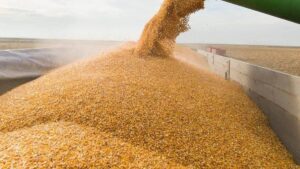
The U.S. Department of Agriculture (USDA) raised the forecast of wheat exports from Ukraine in 2023/24 marketing year by another 1.5 mln tonnes to 16.5 mln tonnes.
According to the April report of the U.S. agency, at the same time, the estimate of carry-over stocks at the end of the MY was reduced from 3.28 mln tonnes to 1.58 mln tonnes, domestic consumption – from 7.7 mln tonnes to 7.3 mln tonnes, and carry-over stocks at the beginning of the MY – from 3.5 mln tonnes to 2.9 mln tonnes.
As for Ukrainian corn, the forecast of its exports after increasing by 1.5 mln tons in March, in April was kept at the same level – 24.5 mln tons.
At the same time, the overall forecast for Ukrainian feed grains was increased by 0.1 mln tonnes to 26.97 mln tonnes due to the same reduction of carry-over stocks at the end of this MY to 4.08 mln tonnes.
In general, the updated global wheat harvest forecast for 2023/24 MY has been improved by 0.66 mln tonnes to 787.36 mln tonnes, while the forecast for global wheat exports has been increased by 1.34 mln tonnes to 213.47 mln tonnes. On the contrary, experts revised the forecast of wheat ending stocks in the world downward by 0.56 million tons to 258.27 million tons.
As for corn, the forecast for its global production in April was reduced by 2.38 million tons to 1 billion 227.86 million tons, while exports were reduced by only 0.47 million tons to 200.59 million tons. The USDA also lowered its estimate of carryover stocks by 2.35 million tons to 318.28 million tons.
As reported earlier, Ukraine attributed the improvement in grain export estimates for this marketing year to the increase in the volume of grain transportation through the new sea corridor under the control of the Ukrainian Navy.

Ukrainian wheat, which is in great demand on the world market, has started to rise in price due to a decrease in supply from key players who have reduced their activity ahead of the new season harvest, according to the analytical cooperative “Start”, created within the framework of the All-Ukrainian Agrarian Council (AAC).
“In April, 541 thsd tonnes of wheat have already been exported. Some of the products that could not be exported in March will be shipped from Ukraine in April. Therefore, this month we can reach the export level of 3 mln tons – this will happen due to the March contracts. Importers are ready to wait for wheat deliveries, as demand is growing. The increase in demand is supported by the forecasts of production decline in the EU, the US and Ukraine, i.e. all key exporters,” the analysts said.
They reminded that last season Ukraine exported a lot due to large carry-over stocks. This season, they will not exceed 1 million tons, as the ports are working. At the same time, the sown areas are shrinking, and less wheat will be harvested. The first estimates of the export potential of Ukrainian wheat in the new season have already been reduced by 3-4 million tons.
“Although the Ukrainian CPT market saw a drop in prices last week, the market is coming back to life, prices are returning to previous levels and will continue to grow. Our main competitor – Russian wheat – has risen in price by $8-10 per ton in recent weeks. The price of Ukrainian wheat will rise by at least $2-3 per ton by the end of the week,” the experts predict.
According to their estimates, by the end of the week, the conditional prices for wheat on CPT basis will be about $175 per ton in the Danube ports, $170 per ton in deep-water ports, $198-203 per ton on DAP Constanta basis.
“According to expectations, the demand for wheat will continue to drive the wheat market upwards,” Pusk summarized.
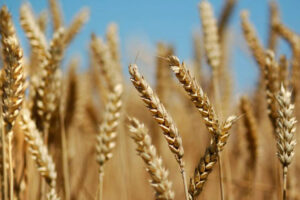
Export sales of Ukrainian wheat are growing, with more than 2 million tons contracted since the beginning of February, which could be a record supply for the season.
According to the analytical cooperative “Start”, created within the framework of the All-Ukrainian Agrarian Council (AAC), 1.4 million tons of wheat have already been sold in March.
“Traders say that Indonesia is very actively involved in purchases of Ukrainian feed wheat. This Asian country has sky-high prices in the domestic market and is interested in importing grain. The demand price from Indonesia is $260-265/ton CIF,” the analysts said, adding that it is very profitable to export Ukrainian wheat to Indonesia.
According to them, the “fly in the ointment” in these plans is the conflict in the Red Sea, where there is a high risk of shelling of the merchant fleet. This is still a systemic problem that negatively affects trade in the Black and Mediterranean Seas. The risk is holding back Ukrainian traders from fixing their positions in this direction.
“There are expectations in the market that in the second half of March the passage of ships through the Red Sea may stop completely. A logistical solution would be to detour ships by sea through Africa, but this will raise the cost of freight by $10-12 per ton,” Pusk said.
In addition, experts noted that Ukrainian wheat continues to be the cheapest on most international markets.
Last week, Ukraine sold wheat with a protein content of 12.5% to Egypt for $224 per tonne with delivery to the country. For comparison, Russian wheat cost $245 on an FOB basis. Ukrainian wheat is very cheap compared to other grains in the EU, Egypt and Turkey. The trade tries to keep prices low to make it worthwhile to trade on many bases. Price gaps are large, which keeps the CPT market at low levels. Nevertheless, more and more sellers are coming forward on FOB basis for wheat, with many farmers willing to sell at $195 per tonne in the Danube ports. At the same time, on CPT terms, wheat costs $175-188 per ton, and by the end of the week, the price tags may lose another $2 per ton, according to the analytical department of Pusk.
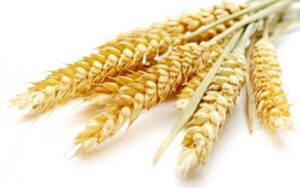
In December 2023, KSG Agro agricultural holding exported 4600 tons of wheat to Spain, the company’s press service reports.
According to the report, the wheat was purchased by grain trading companies.
“In wartime, any export delivery is always a task with many unknowns. However, despite numerous difficulties, we continue to export grain to international markets. In the current most difficult period of Ukraine’s history, the food security of many countries depends on us, agricultural producers and exporters,” said Sergiy Kasyanov, Chairman of the Board of Directors of KSG Agro, as quoted in the report.
As reported, in the first quarter of 2023, KSG Agro exported 4,200 tons of grain crops mainly to Asia and Africa. Deliveries were made as part of the “grain corridor” through the ports of Odesa and Odesa region.
KSG Agro, a vertically integrated holding company, is engaged in pig breeding, as well as the production, storage, processing and sale of grains and oilseeds. Its land bank is about 21 thousand hectares in Dnipropetrovska and Kherson regions.
According to the agricultural holding, it is one of the top 5 pork producers in Ukraine.
In January-September 2023, KSG Agro received $1,336 million in net profit, which is almost 14 times more than in the same period in 2022. Its EBITDA for the three quarters of this year increased by 67% to $4.5 million, and sales revenue increased by 16% to $11.9 million.
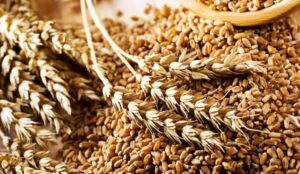
The US Department of Agriculture (USDA) has raised its forecast for Ukrainian wheat production in the 2023/24 marketing year (MY, September 2023 – August 2024) by 0.9 million tons to 23.4 million tons and for exports by 1.5 million tons to 14 million tons.
According to the USDA’s January report, Ukraine’s ending stocks will also increase by 1.8 million tons to 4.38 million tons.
For corn, the USDA left the harvest, exports and ending stocks in Ukraine unchanged: 30.5 million tons, 21 million tons and 6.82 million tons respectively.
In general, the updated global wheat crop forecast for the 2023/24 grain year was improved by 1.9 million tons to 784.91 million tons, due to the positive revision of estimates for Ukraine and Russia, while the forecast for China was lowered. The forecast for global wheat exports was also raised by 2.35 million tons to 209.54 million tons. The experts also revised the forecast for global wheat ending stocks upwards by 1.83 million tons to 260.03 million tons.
For corn, the forecast for global production in January was raised by 0.0137 million tons to 1.235 million tons, while exports were lowered by 0.57 million tons to 200.89 million tons. Ending stocks will rise by 10 million tons to 325 million tons.
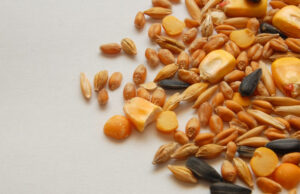
Bulgaria has authorized licensed imports of Ukrainian sunflower, rapeseed, corn and wheat, according to the website of the Ministry of Agriculture and Food of Bulgaria.
According to the report, during an online meeting on Friday, the Ministers of Agriculture of Bulgaria and Ukraine Kirill Vatev and Nikolay Solsky agreed to implement a licensed export regime for sunflower, rapeseed, corn and wheat seeds and agreed on the details of its application.
“The Ministry of Agriculture and Food has kept its promise to limit imports of these agricultural products as much as possible until November 30, according to the Memorandum signed between the government and the Initiative Committee of Protesting Farmers,” the Bulgarian ministry quoted Minister Vatev as saying.
He emphasized that after this period, the two countries will “strictly monitor that there are no market distortions and that the interests of Bulgarian producers, processors and consumers are not undermined.”
Imports and data exchange between the two countries will continue, the Bulgarian ministry emphasized.
As reported, in November 2023, the Minister of Agrarian Policy of Ukraine Solsky expressed the opinion that Bulgaria, which refrained from imposing a unilateral ban after September 15, could become the first frontline country to lift the ban on Ukrainian agricultural products.
In his opinion, the crop that Bulgaria will be ready to import from Ukraine will be sunflower. In Bulgaria, in the fall of 2023, a compromise was reached between farmers and processors to open the market for imports of Ukrainian sunflower from December 1. By this time, local sunflower oil producers, according to the Bulgarian government, will have to buy back the sunflower seeds produced by farmers, and they will need an additional 1.5 million tons of raw materials.
Earlier, Stepan Kapshuk, head of the industry association Ukroliyaprom, told Interfax-Ukraine that Bulgaria has 16 oil extraction plants that have significantly increased production in the 2022 season and intend to develop sunflower oil exports using sunflower seeds imported from Ukraine.
On September 15, the European Commission announced that it would not extend the restrictions on imports of agricultural products from Ukraine to five neighboring EU countries (Poland, Bulgaria, Hungary, Romania, and Slovakia) under certain conditions that will help avoid a new sharp increase in supplies.
The restrictions were introduced on May 2, 2023, and applied to imports of wheat, rapeseed, sunflower, and corn. These five Eastern European EU member states argued that Ukrainian agricultural products, when imported duty-free into the EU, were being deposited in their countries and were harming their local agricultural sectors.
After the restrictions were lifted, Poland, Hungary, and Slovakia imposed unilateral bans. Poland expanded its list of banned products to include rapeseed cake and meal, as well as corn bran, wheat flour, and derivatives. Hungary extended the list to 24 commodity items.
Ukraine filed a lawsuit with the WTO, accusing Poland, Hungary, and Slovakia of discriminatory treatment of its agricultural products.
Ukraine is currently negotiating a mechanism for licensing exports of Ukrainian agricultural products with mandatory verification in each of the five countries.